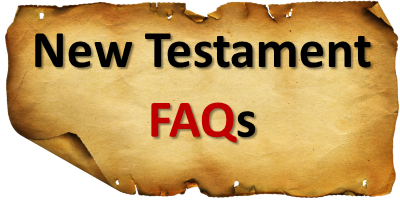Do the first letters of each of the words on the sign of Yeshua's (Jesus') cross spell out יהוה (YHWH) when it was written in Hebrew? Answer
Why is the name of Jesus written as יש״ו (yeshu) in some books and documents? Answer
In the Greek text of Matthew 16:18 there is a word pun with the Greek words “petros,” meaning “Peter,” and “petra,” meaning “rock.” From this can we conclude that this book was originally written in Greek and not Hebrew? Answer
Was Hebrew a common language in Israel in the first century CE? Answer
Do the first letters of each of the words on the sign of Yeshua's (Jesus') cross spell out יהוה (YHWH) when it was written in Hebrew?
All four Gospels recount what was written on the sign that is placed on the cross of Yeshua, but there are differences in that wording.
Matthew 27:37 – This is Jesus the king of the Jews
Mark 15:26 – King of the Jews
Luke 23:38 – This is the king of the Jews
John 19:19 – Jesus of Nazareth* the king of the Jews
* Most translations have this phrase, but the Greek has “Jesus the Nazarene.”
If we take a compilation of all of these, which is most likely what the sign actually read, we have “This is Jesus of Nazareth the king of the Jews.” In Hebrew this would be written as; זה ישוע הנצרי מלך היהודים (zeh yeshua natsriy melekh ha’yehudiym). The acronym for this would be; זיהמה (ZYHMH).
Now let’s look at each verse individually;
Matthew 27:37
זה ישוע מלך יהודים
zeh yeshua melekh yehudiym
Acronym: זימי (ZYMY)
Mark 15:26
מלך יהודים
melekh yehudiym
Acronym: מי (MY)
Luke 23:38
זה מלך יהודים
zeh melekh yehudiym
Acronym: זמי (ZMY)
John 19:19
ישוע הנצרי מלך יהודים
yeshua hanatsriy melekh yehuiym
Acronym: יהמי (YHMY)
The closest that any of these come to the name יהוה (YHWH) is John 19:19, but if we add the word “and” between the two phrases (which is not found in any of the Gospels) and “the” before יהודים (yehudiym/Jews, which Biblical Hebrew would rarely do, but does on occasion), we now have; ישוע הנצרי ומלך היהודים (yeshua hanatsriy umelekh hayehudiym) and the acronym isיהוה (YHWH).
In conclusion, from a purely textual criticism of the phrase found in the Greek text, the acronym does not spell out the name יהוה (YHWH). However, if a slight modification is made to the Greek texts, it is possible that the acronym of the words on the cross could spell out the name יהוה (YHWH).
Why is the name of Jesus written a יש״ו (yeshu) in some books and documents?
The name Jesus is represented by יש״ו (pronounced yeshu) in some non-Biblical texts, but this isn't actually his name, it is an acronym. Identified as such by the ״ before the last letter, that is used by Jews for Jesus’ name. . This acronym stands for ימח שמו וזכרו (y’mahh sh’mo v’zichro) and means “may his name and memory be obliterated.”
In the Greek text of Matthew 16:18 there is a word pun with the Greek words “petros,” meaning “Peter,” and “petra,” meaning “rock.” From this can we conclude that this book was originally written in Greek and not Hebrew?
The Hebrew authors love to add word puns in their writings and the Tenach/Old Testament is filled with them. So, does the use of a word pun in the Greek book of Matthew indicate that this was originally written by Hebrew authors with the Greek language? Not necessarily for several reasons. First, If the text was originally written in Hebrew and translated into Greek later the translator may have simply added the word pun, especially if the Hebrew already had a word pun. Secondly, if we examine the Hebrew book of Matthew as preserved by Shem Tov Ibn Shaprut (14th Century CE), we find a different word pun.
I say to you, you are a stone (eh-ven) and I will build (ah-venah) upon you my house of prayer.
Thirdly, while there are some word puns in the Greek text of the Bible, there are far more found in the Hebrew Matthew and in the rest of the New Testament when the Greek is translated into Hebrew.
Was Hebrew a common language in Israel in the first century CE?
One of the best arguments for proving that Hebrew was a commonly used language in Israel during the first century CE (AD) is through the evidence discovered in the archeological record. Letters from Shimon Ben Kosba (Simon Bar Kockba, red box) have been discovered in the dead sea region and were written during the second Jewish revolt of 130-135 CE. These letters are written in Hebrew, not Aramaic or Greek. What is also interesting about these letters is that they use contractions, which can only come from a spoken language. We consistently use contractions such as "I'm" for "I am" or "wouldn't" for "would not". One of these contractions is the word tashmayim, the contracted form of et hashamayim (the heavens, yellow box).




